Original story published in The Ellsworth American.
ELLSWORTH - At Fogtown Brewing Company, a local favorite for craft beer and wood fired pizza, kitchen manager Tyler Nickel tosses raw pizza dough in the air, spinning it into a round shape. He drizzles it with herb-based oil, prepping it with mozzarella and parmesan cheese, sweet corn, cotija with lime zest; a fan favorite, this will become an Elote pizza, one of the many hand-crafted options available during the summer season.
Nickel, who began experimenting in the kitchen when he was a child, has worked in restaurants for around thirteen years. Now at Fogtown for three years, he’s begun to dive deeper into the realm of what ‘local’ cuisine can mean.
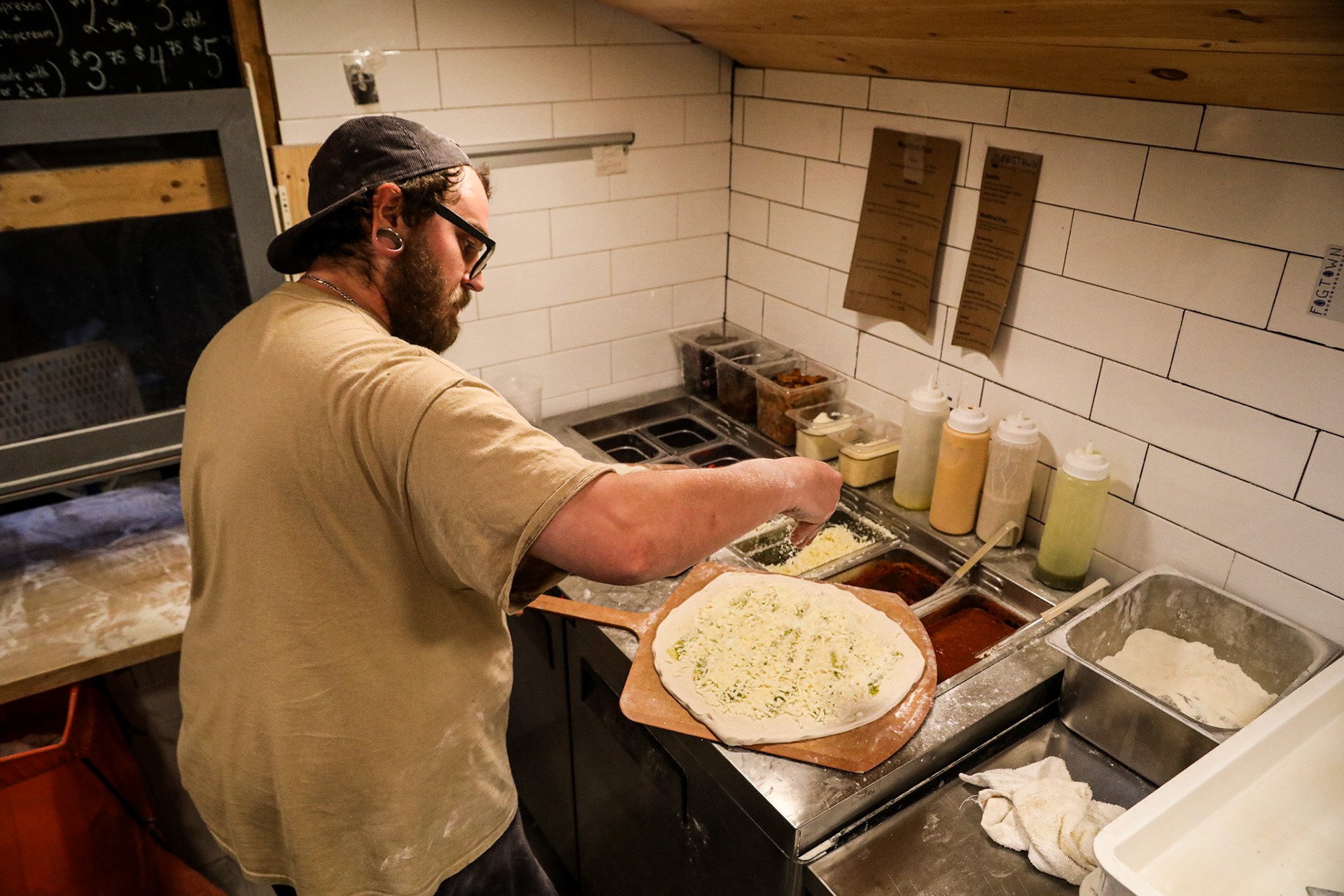
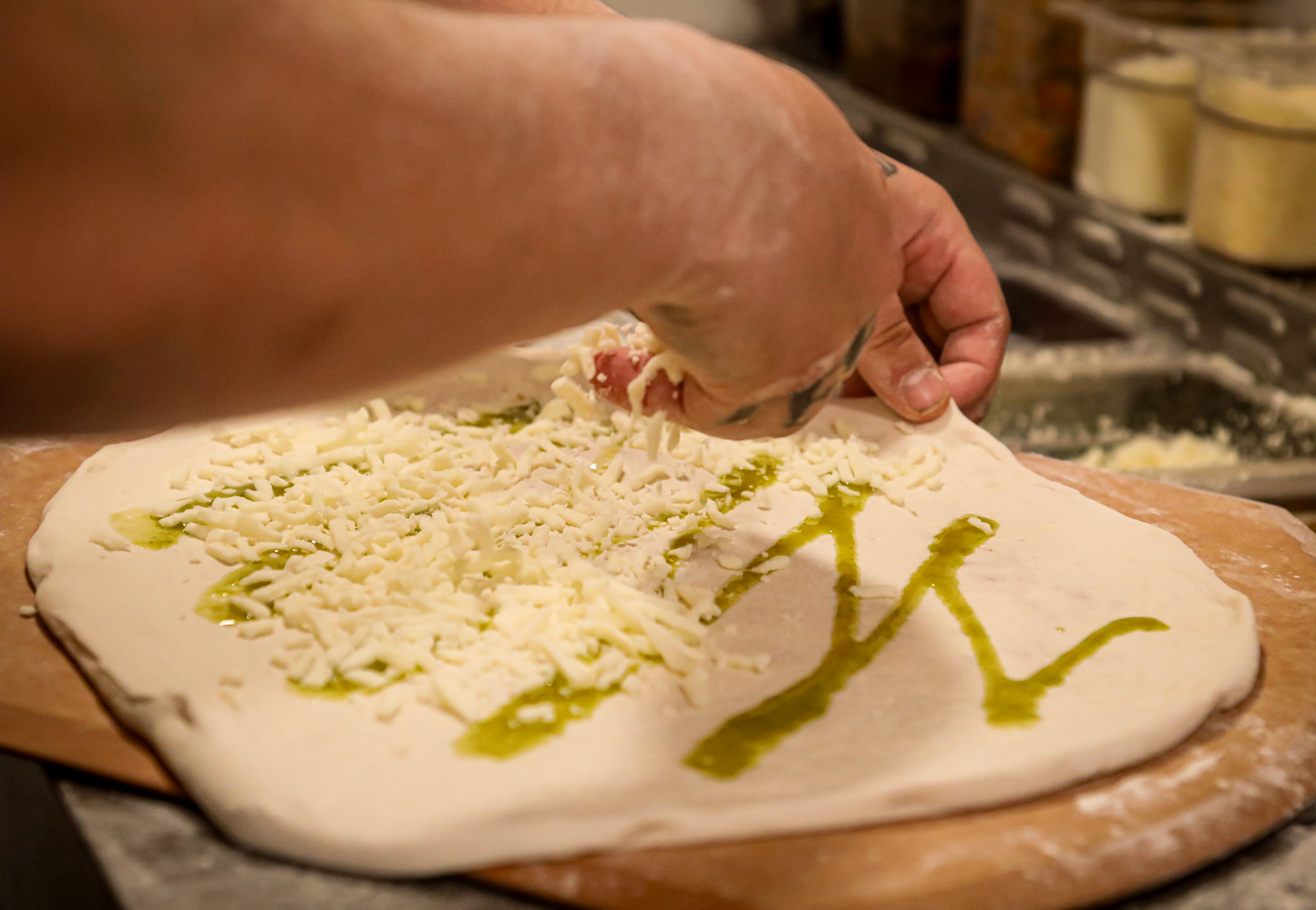
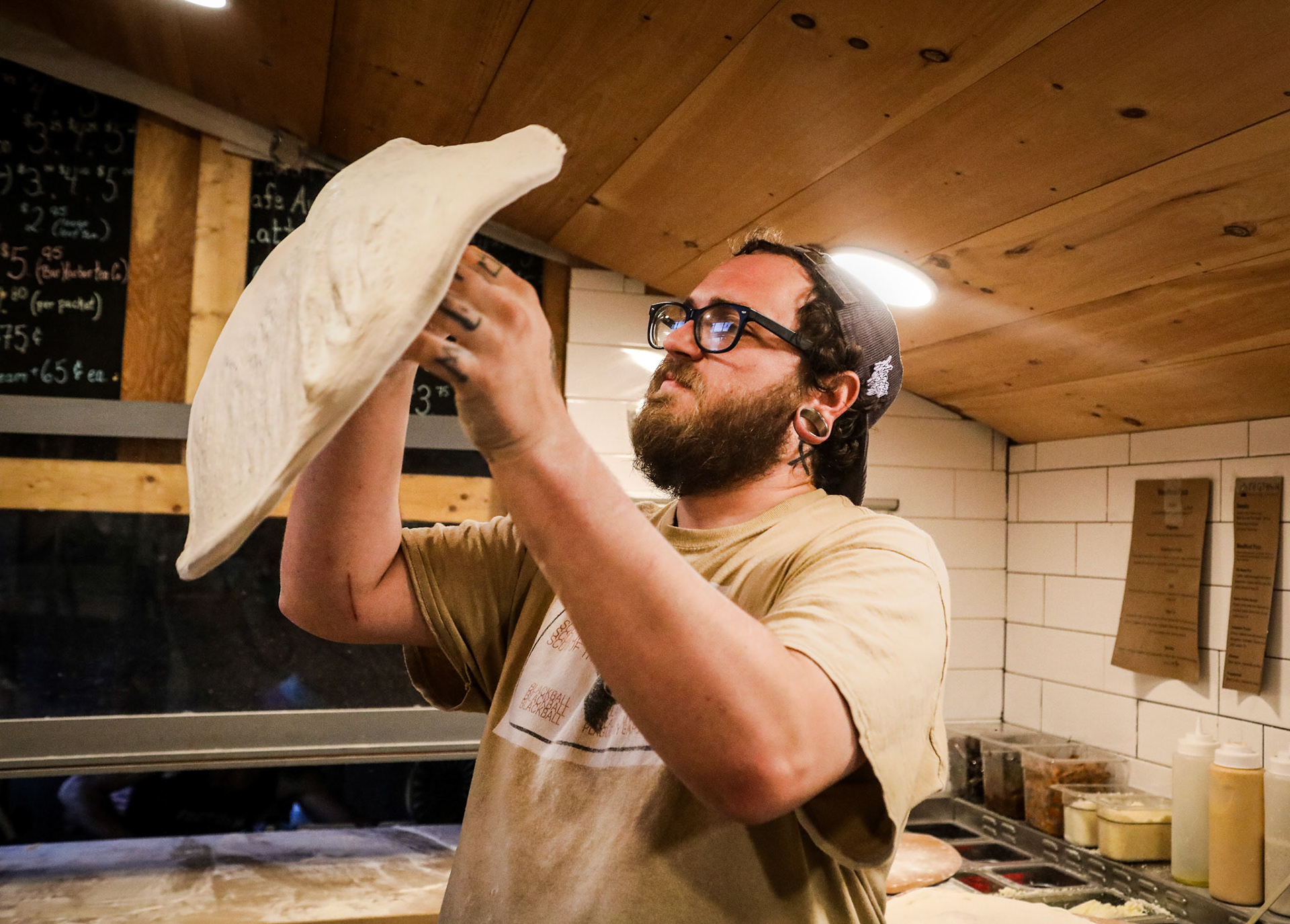
“I kind of pull from recipes that I’m interested in, and take the local aspect of it and throw that in to try to mix it up a little bit,” he explained. “I throw in my own style. I do a lot of foraging in the fall and in the summer, and this year’s been the first year that I’ve been really okay with eating what I’ve been foraging.”
While many of the ingredients used at Fogtown are bought from local farmers or grown themselves, some of the things used in Nickel’s kitchen he finds deep in the local forests.
“I try to go foraging every day before work,” he said. On Sundays, he embarks on an all-day forage with a handful of friends, looking mostly for wild mushrooms. Namely, chanterelles and black trumpets.
Deep inside the Kingdom Woods Conservation Area in Blue Hill, Nickel, his girlfriend, and their foraging companions divert from the trail and head into the brush, stepping over creeks, rocks, and piles of sticks. If the conditions are too wet, the mushrooms will get soggy or moldy. The key, he said, is looking on higher ground, slightly farther from where the water collects.
After some time, Tyler and the group find a collection of chanterelles hidden under a fallen tree. They pluck the brightly colored mushrooms from the ground, cutting off part of the dirty stems and placing them in their respective baskets.
These will be dried out, and maybe used in a fall soup.
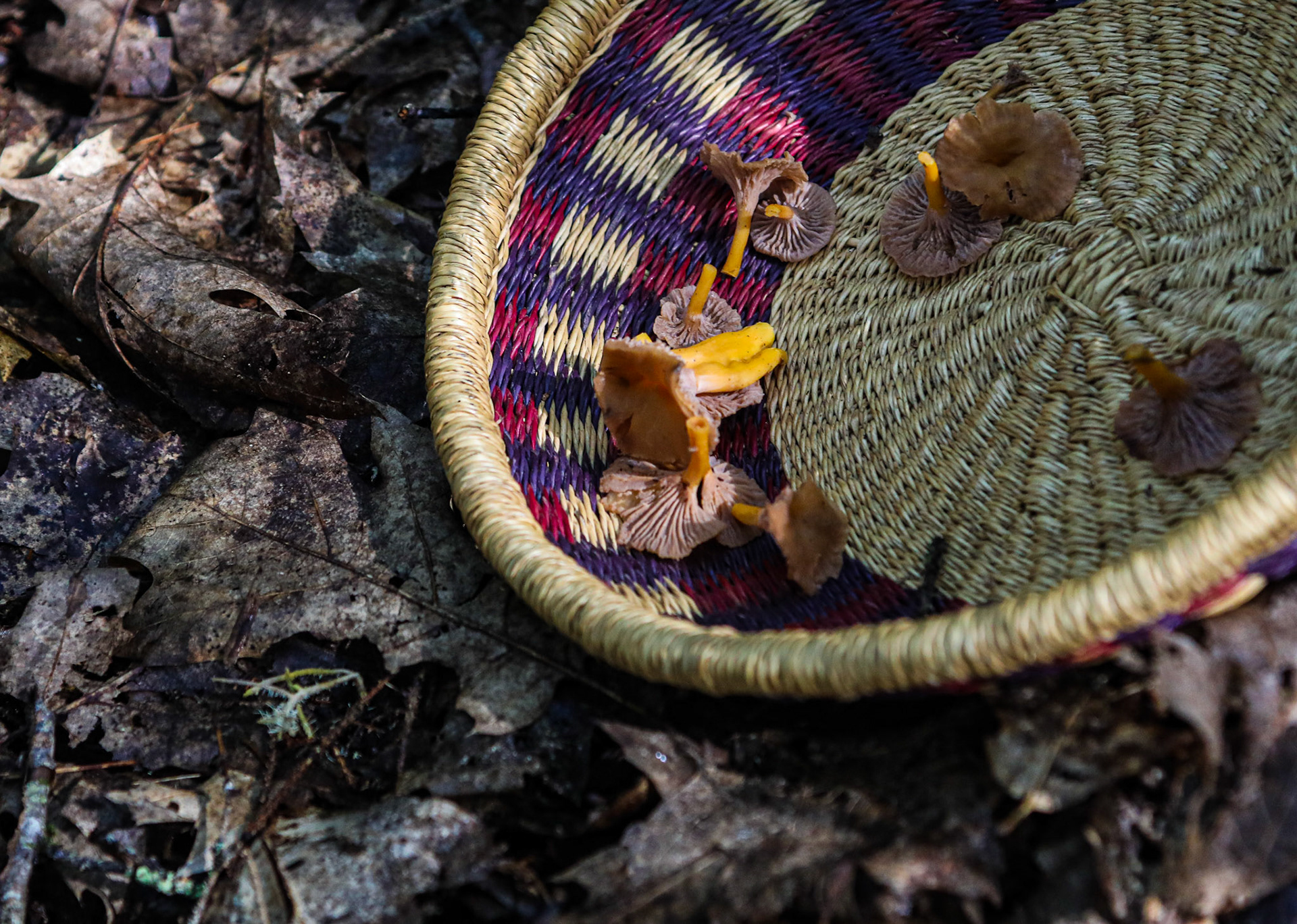
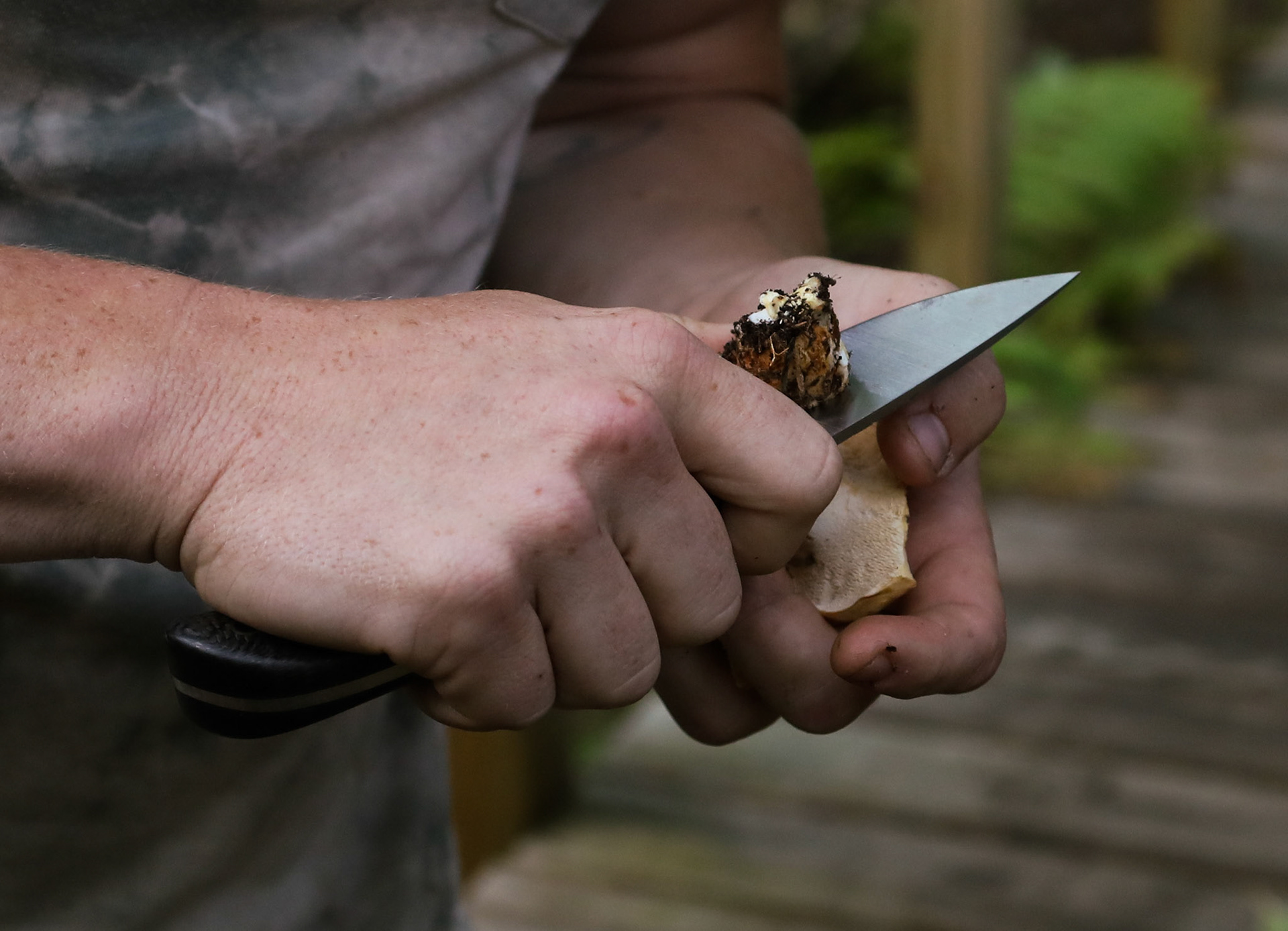
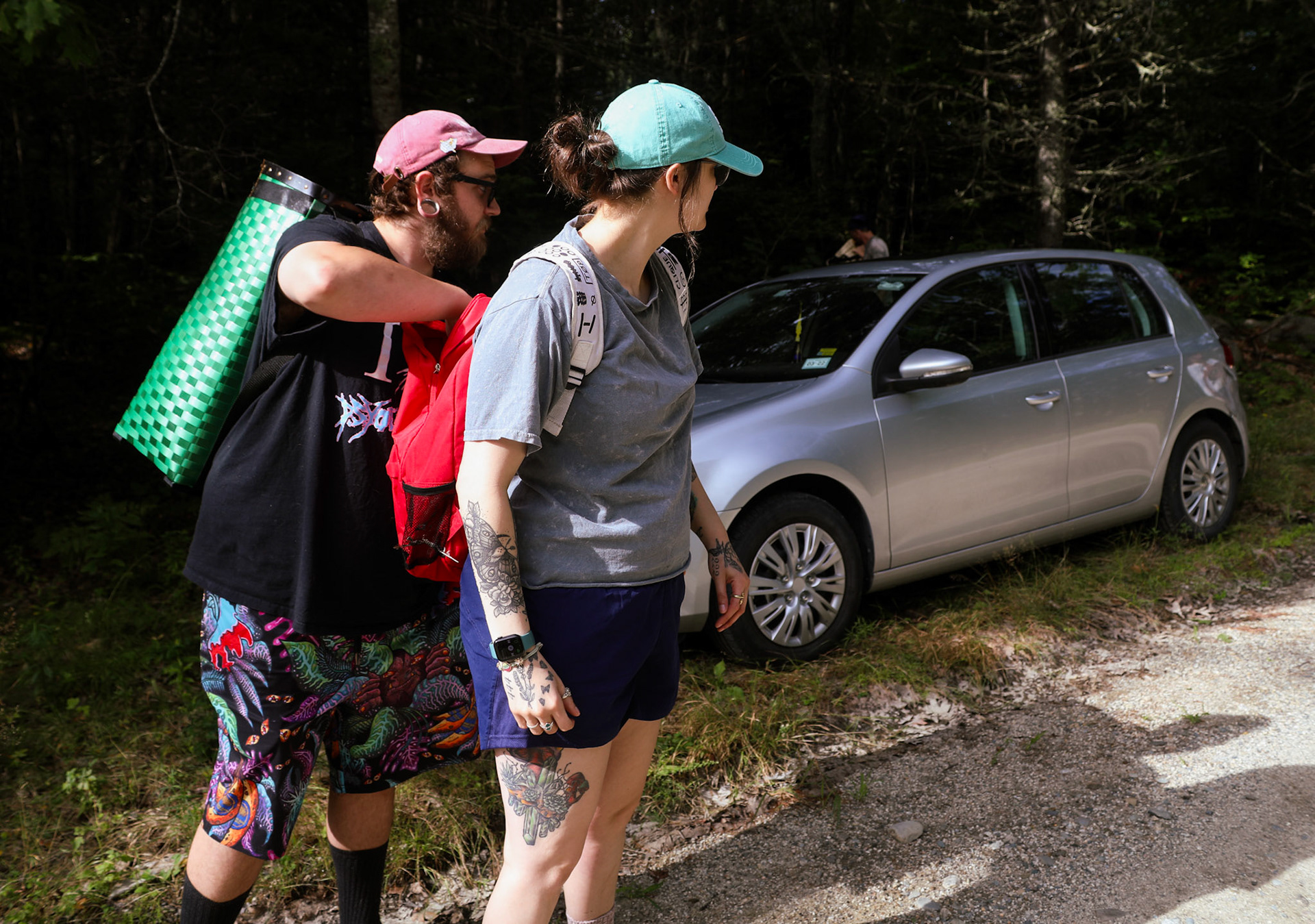
Some days of foraging are better than others. Headed back to the car, Nickel had only found a dozen or so edible mushrooms. The week prior, he had come back with fifteen pounds.
Even when he doesn’t find anything, he uses the time in the forest as a learning opportunity.
“Normally I bring a couple books with me on taxonomy, going out and learning while I’m in the field,” he explained. “Just recently I was with a friend, he took me to one of his spots and we were looking for mushrooms, but we didn’t find any until right at the end of the excursion. But he taught me what sweet fern looked like and smelled like, and what it was used for, and a lot of stuff about apples I didn’t know… What I’m trying to be out there doing is learning.”
The ingredients Nickel doesn’t forage himself mostly come from local connections in the area, both for the food and the brews. Some apples used in the cider, for example, come from the original homestead cider apple trees that have been growing locally for hundreds of years, and the Feral Tree cider is made with all foraged apples.
“We’re finding these old trees, we’re mapping them out, and then every season we go and talk to the people that own them and ask if we can trade a couple bottles of cider for access to their apples,” Fogtown owner Jon Stein said. “Usually cider apples are more bitter and more acidic, and not great for eating, so people don’t mind that we’re taking them.”
Some local flavors were a little more out of the ordinary. Nickel’s favorite creation so far was his Seaweed pizza, featuring sweet soy reduction, locally raised wakame (a cold-water kelp) for a seaweed salad topper, and panko-fried shrimp.
Whether it’s mushrooms, apples, herbs or spices, Nickel and the kitchen staff at Fogtown use their creativity to make their ideas a reality. In the fall, Fogtown will be unveiling a new set of flavors, veering away from exclusively serving pizza and optimizing a more diverse menu for Ellsworth’s year-round residents.
While not finalized yet, patrons can expect to see different kinds of sandwiches, salads, burgers, and more make their way onto the menu, still optimizing local flavors and ingredients.
“[Fogtown] really is intrinsically tied to the community,” Stein said. “...The local food ties into it so much; it just doesn’t make sense to anybody here to source food through one of the massive food providers to just get the cheapest ingredients to maximize profits. It wouldn’t feel right to anybody that works here, nor to me. So the food, the grains that we use for the beer, allow us to connect to local growers and farmers, and that’s the magic. That’s why we’re all working here.”